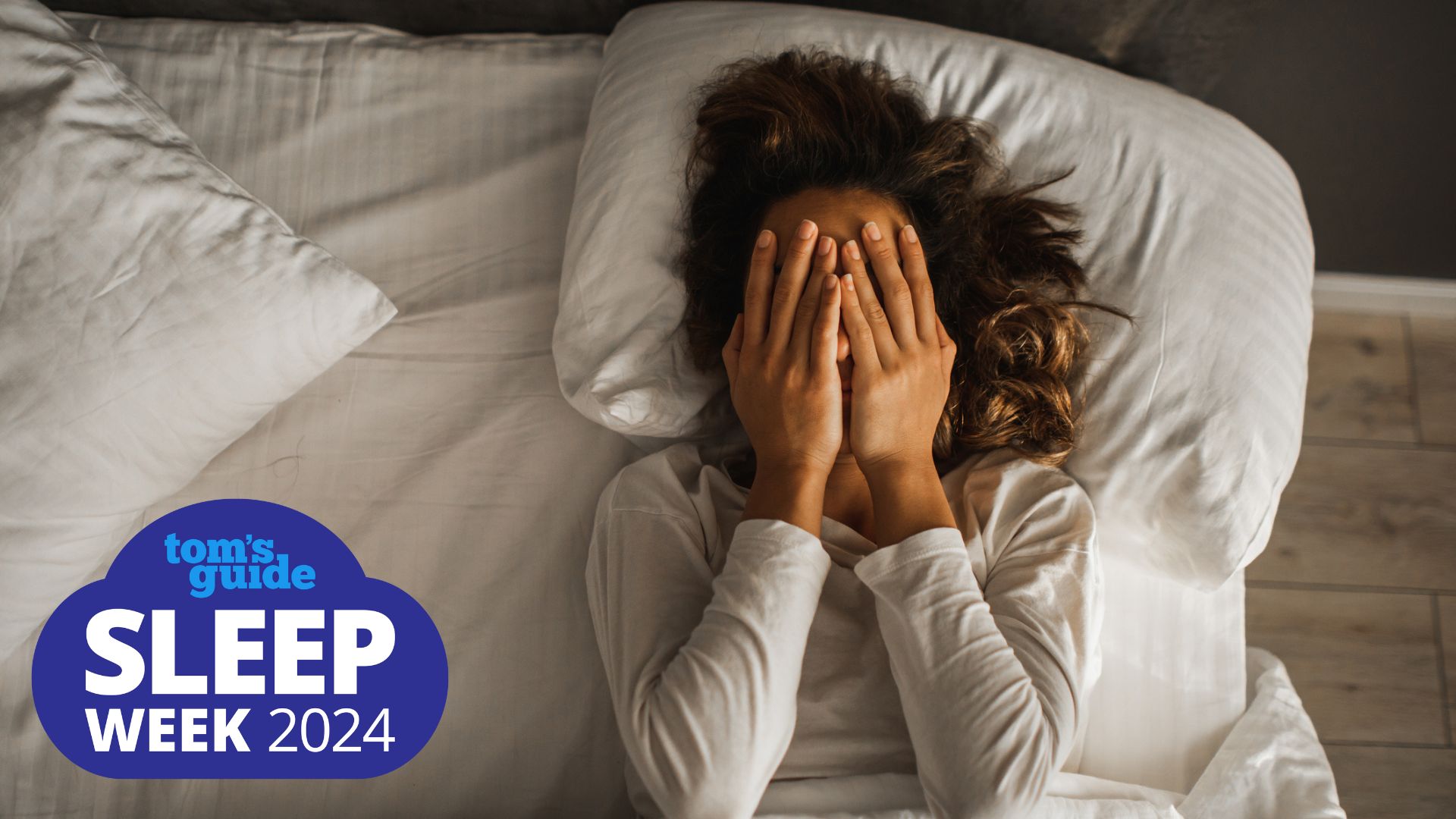What is sleep paralysis — and is it possible to stop it from happening in the moment?
A leading sleep scientist explains what causes sleep paralysis

If you’ve ever experienced sleep paralysis, a sleep disorder during which you wake up but can’t move, you’ll know it can be an incredibly frightening experience. But what causes sleep paralysis, and can it ever be stopped while in the moment?
To coincide with Sleep Awareness Week 2024, we put that question to Dr Sophie Bostock, a leading sleep scientist, to find out more. “Sleep paralysis is an example of a parasomnia, a disorder of the switching between different sleep stages and wakefulness,” explains Dr Bostock, who goes by the name, The Sleep Scientist.
Sleep paralysis is more likely to happen when you’re stressed, already have anxieties or have an interrupted sleep cycle. You don't need to fear sleep paralysis and there are methods to avoid it and actually stop it from happening in the moment, says Dr Bostock.
Nectar Mattress: up to 40% off at Nectar Sleep
During Sleep Awareness Week, you can save up to 40% on memory foam and hybrid mattresses at Nectar Sleep. We rate the Original Nectar Memory Foam as one of the best mattresses for most sleepers with a smaller budget seeking a breathable all-foam bed to relieve aches and pains. A queen is now reduced to $649 in the US and £600 for a double with a free bedding bundle in the UK. You'll also get a lifetime warranty and year's sleep trial.
What is sleep paralysis?
Sleep paralysis, as the name suggests, is when your body feels paralyzed as you wake up - normally during REM sleep - one of the deepest stages of sleep. This is because your mind hasn’t signaled to your body that you’re awake yet, so your muscles are still relaxed, feeling almost paralyzed.
It’s more common than you may think, with one study showing that 4 in 10 of us have experienced the sleep disorder. But when does it occur? “During REM, or rapid eye movement sleep, which is when we do most of our dreaming, our voluntary muscles are usually switched off,” adds the sleep expert.
“During an episode of sleep paralysis, the brain is fully conscious, but the main muscles of the limbs, the head and the trunk are temporarily stuck in REM atonia - we cannot activate them to move or speak. A sense of threat or hallucinations can also arise from the dream state invading our waking state.”

Anyone can experience sleep paralysis, but some people are more prone to it, especially if they do shift work or fly a lot for work - and experience jet lag, meaning your sleep cycle is constantly disrupted. Anxiety and sleep disorders can also heighten your experiences of sleep paralysis.
Sign up to get the BEST of Tom's Guide direct to your inbox.
Get instant access to breaking news, the hottest reviews, great deals and helpful tips.
What are the different types of sleep paralysis?
Predormital sleep paralysis
“If it occurs while you are falling asleep, it's called hypnagogic or predormital sleep paralysis,” says the sleep doctor. Sometimes in the early stages of sleep, when our muscles have relaxed, before our brain has we can experience some of the symptoms of sleep paralysis.
Postdormital sleep paralysis
Dr Bostock explains that if sleep paralysis happens as you are waking up, it's called “hypnopompic or postdormital sleep paralysis.” This normally occurs because your brain has woken up during a REM stage of sleep before your body has had a chance to register it.
What causes sleep paralysis?
Not enough research has been done into the cause of sleep paralysis, but some experts believe that, like any sort of sleep disruption, it can be brought on by high periods of stress, anxiety or even drinking alcohol excessively. One study last year, which looked at patients who experienced sleep paralysis, noted that most experienced some sort of stress or anxiety.
Studies have also shown that genetics or mental health disorders, such as bipolar disorder or post-traumatic stress disorder (PTSD) can also make you more prone to bouts of sleep paralysis.
But, fear not, as the sleep doctor says it’s important to know that “sleep paralysis is unlikely to be a sign of anything other than a faulty sleep-wake switch in the brain, usually caused by sleep deprivation or stress.”
What does sleep paralysis feel like?
If you’ve never experienced the sleep disorder Dr Bostock explains: “Sleep paralysis happens when part of sleep intrudes into wakefulness; you are conscious and alert, and yet your body cannot move. Most people describe the feeling of being paralysed in their own body, often accompanied by intense fear, panic, helplessness or breathlessness.”
Some rare cases can however be more dramatic: “You may sense a tightening in the chest or throat, someone standing over you, or have hallucinations. Some people describe an out-of-body experience, where they levitate or spin. Episodes can last from a few seconds to a few minutes.”
How to stop sleep paralysis from happening
There is no scientific way, which doctors can prescribe, to stop sleep paralysis from happening in the moment, although the sleep expert says some people find it helpful to focus on moving their fingers in order to bring them out of the paralysis.
However, if the sleep disorder isn’t caused by an underlying mental health condition there are a few lifestyle factors which can help your sleep patterns and to get more high quality sleep:
- Set a consistent sleep and wake time
- Get plenty of exercise, preferably in daylight
- Curb alcohol, sugar and caffeine intake
- Introduce lots of vegetables, water and fresh foods into your diet
- Reduce stress levels with meditation or yoga
- Ensure your sleep environment is comfortable
- Stop scrolling on your phone and read a book instead
- Aim to get between 7 - 9 hours of sleep each night

How to treat sleep paralysis
Although there is no cure for sleep paralysis there can be ways to change how you live or work, says Dr Bostock, who suggests that if sleep paralysis is linked to a period of high stress, “ask yourself: what can you do to reduce the stressor, or to increase your ability to cope? This might mean talking to your manager, a close friend, or a healthcare professional for more support.”
Your sleep position might also be a reason why you are more prone to sleep paralysis. “Sleep paralysis can be more likely if you sleep on your back, so try sleeping on your side to reduce the risks," says Dr Bostock.
If you find that you fall asleep on your side, only to roll on to your back, try piling up pillows next to your back so you can’t move in the night.
Sarah is a freelance writer who has been published across titles including Woman & Home, The Independent, and the BBC. Sarah covers a variety of subjects, including health and wellness. For Tom's Guide Sarah often writes about sleep health and hygiene, and interviews leading sleep experts about common issues such as insomnia and sleep deprivation.



